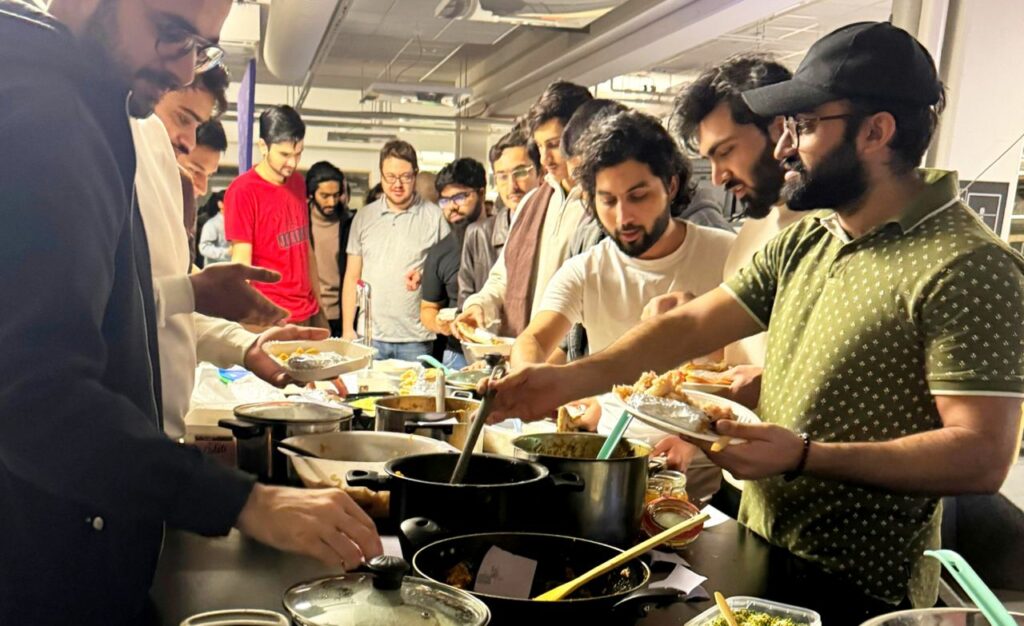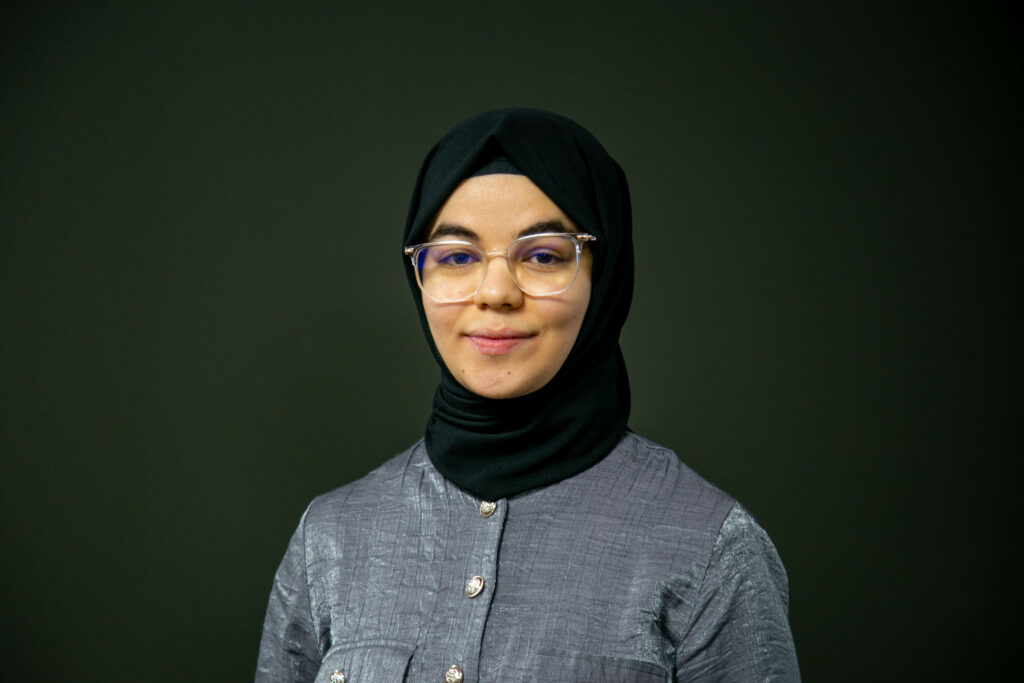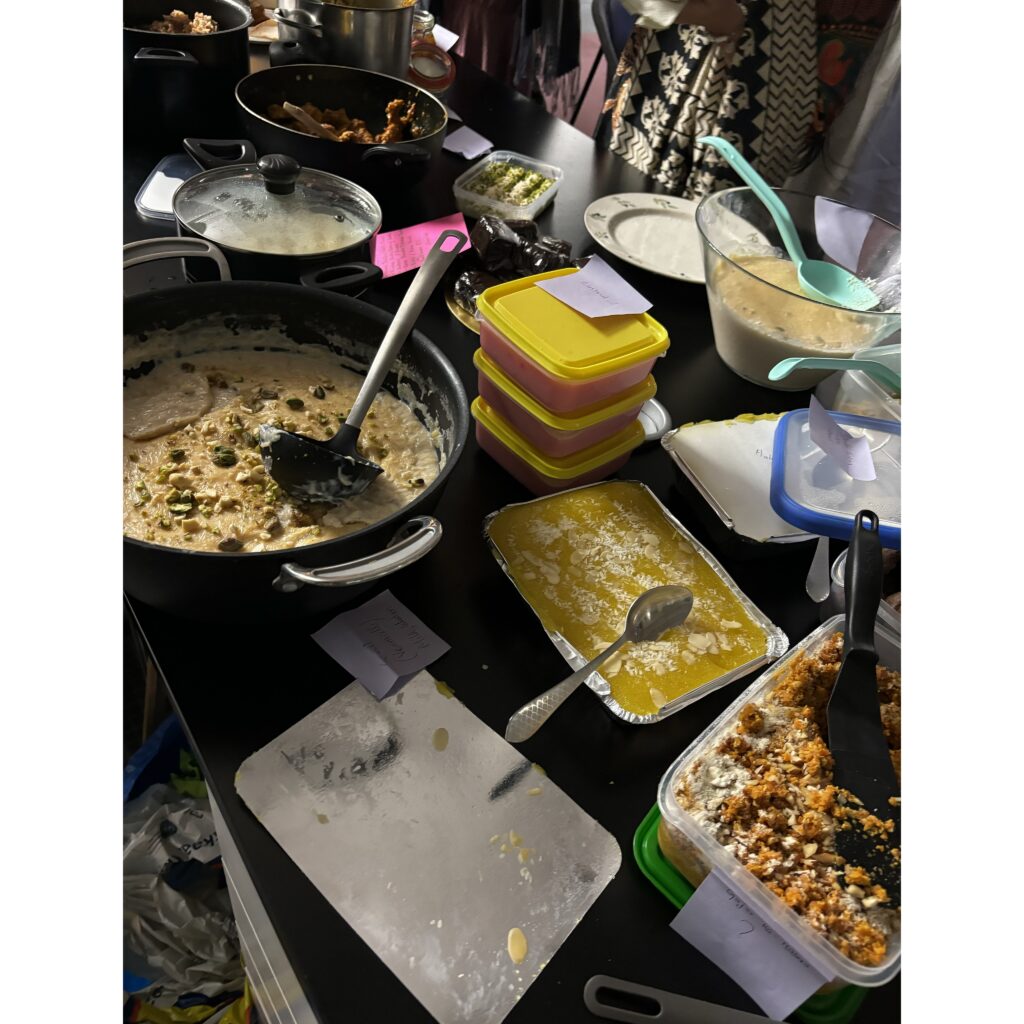A new Muslim students’ association aims to integrate students arriving from Muslim countries
Many international students arrive in Finland from Muslim-majority countries. We asked the new Tuni Muslim Association TUMA’s Board members what their work is like and how they view Muslims’ role in the university.
Original text: Pihla Leppänen
Pictures: Juuso Pikkarainen and TUMA
Translation: Isabel Lehtikallio

You can also read this article in Finnish here!
Tampere Universities’ Muslim students have established a new Muslim students’ association in the past year. Their activities started at an organised iftar, a fast-breaking evening meal, last March. Tuni Muslim Association’s, or TUMA’s, Communications Official Fatma Kunduraci explains originally wanting to get together with friends for iftar. However, the friend group began discussing whether it could be possible to organise the event for all Muslim students in the university.
“We started contacting people. We managed to gather so many people into the group that organising was successful. Iftar was a good event, and afterwards we began to consider that we could organise more events together as Muslims”, Kunduraci explains about the launching stages of their activity.
Officially Tuni Muslim Association TUMA was established in last August and was granted association status by the Student Union of Tampere University TREY in October. Additionally, from the student unions who answered Visiiri’s questionnaire, the Student Union of the University of Helsinki HYY, the Aalto University Student Union AYY, the Student Union of LUT University LTKY and the Student Union of the University of Eastern Finland ISYY also have organised Muslim-focused activity operating within them.
Additionally, other universities’ students’ Muslim associations and clubs’ activities have primarily begun in the 2010s and 2020s.
The teekkari community is the most involved
TUMA’s goal is to help international students adapt to Finnish society and to connect Muslims with each other.
“Nowadays there are a lot of international students coming to Finland, most of who arrive from Muslim countries. Whether we originate from Pakistan, Türkiye, or India, we have shared holidays and cultural similarities”, TUMA’s well-being organiser Muhammad Zain Abid notes.
Tampere University Student Affairs Office was unable to confirm whether the majority of international students arrive from Muslim-majority countries. In 2024, Tampere University had the most arrivals of degree-students from Pakistan, Bangladesh, Vietnam, Iran, and China. In Pakistan, Bangladesh, and Iran the majority of the population are Muslim.
There seems to be a demand for Muslim activities: a Muslim Students Welcoming event organised in the autumn had over 150 attendees. Despite the activity being completely in English and targeted especially for immigrants, Finnish-speakers are also involved. The Board has members from Algeria, Pakistan, Türkiye and Finland, and events have had participants from up to 16 different countries.
Adapting different cultures together is central to the association’s activity.
“When an immigrant arrives in a completely new culture, they can be confused. We want to tell them that you don’t need to completely disregard your home country’s culture, but that different cultures must co-exist”, Kunduraci emphasises.

Many international students come to Finland to study technical fields, thus TUMA’s activity has concentrated to Hervanta, although they have members from all campuses. The association has 70-80 registered members, but there are over 350 members involved in a Telegram group, from who, not everyone studies at the universities. An ordinary event, such as a board game night, typically garners fiftyish participants.
Career counselling and celebrating holidays
TUMA’s secondary goal is offering career counselling for Muslims.
“For example, we can ask someone with immigrant-background now working in Finland to give us a lecture on how to prepare for the work life and how to find better employment opportunities in Finland”, Abid explains.
The plan is to arrange career counselling concerning different fields, and access to TUMA’s membership being open for both staff and alumni in addition to students at the universities aids in arranging this.
Otherwise, the activities are more relaxed: during the year, a camping event and a board game night have been organised. There is a joint-event with the International Teekkari Guild INTO in the plans. Integral is also celebrating Ramadan and its ending festival Eid together following last year’s initiative.
“Those who’ve previously spent Eid with their friends and families wondered what they were going to do here, when they’re on their own. When we arranged Eid, they were very happy and saw the event as an important initiative, because they wouldn’t have celebrated alone”, Kunduraci explains the meaning of celebrating shared holidays.
Events are alcohol-free and the food is halal
The association’s work is not connected to any religious community although the objective is to bring Muslims together. The Board members state their activities to be similar to other student associations, but certain things distinctively display the nature of Islam.
“Two key matters where Islam affects our activities are halal food and abstaining from alcohol”, Abid states.
The association has also begun to collect signatures for a petition aiming for halal meat options becoming available at the universities’ restaurants. The association reports that the petition has just over 100 signatures.
“Maybe one restaurant could offer halal-chicken or -beef once a week, so that people could eat at the campus and they wouldn’t have to bring food from home or go home to cook”, Abid wishes.
According to Abid, Muslims eat the vegetarian or pescatarian options at the university, but many leave in the middle of a study day to cook at home to get a meal with meat, which can take between two and three hours instead of eating for half an hour at the university.

Additionally, Islam’s cultural effect is present in TUMA’s activity: the association has two well-being organisers, with one being a man and one being a woman.
“The idea is, if women are having an issue, they might find it more comfortable talking about it with another woman, which is a cultural thing in Muslim countries”, Abid explains.
To date, men and women have had collective activity. The well-being organisers also manage and sort out matters together.
Experiences of the student community role are good
Alcohol does not belong in Islam, but it is often playing an important role at different student associations’ events and activities. However, Abid shares an example of his experience as a tutor in his home association Tampereen Rakentajakilta TARAKI, and knowing several other Muslims who have been tutors in their own associations.
“We are part of the community, but we adapt our own work to our culture and values. I think that’s multiculturalism”, Abid states.
TUMA welcomes the participation of non-Muslims as well. Non-Muslims who have participated in the events before enjoyed the togetherness and experiencing a new culture, according to Abid.
“Everyone is welcome as long as they’re respectful and wish to participate”, Kunduraci summarizes.